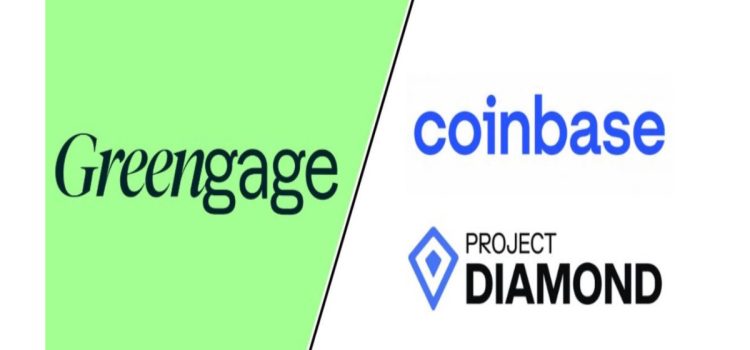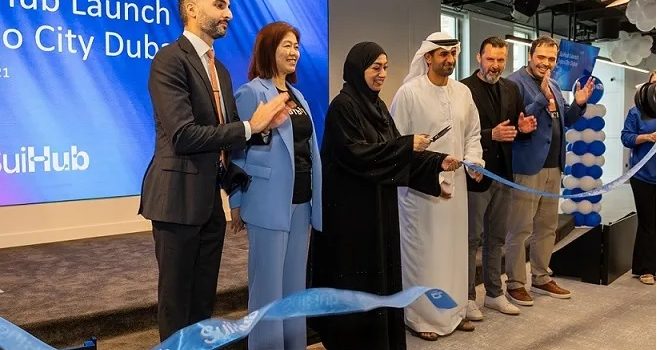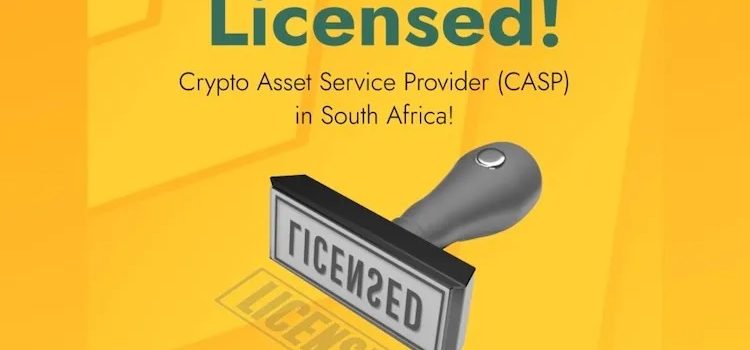SUI, through its SuiHub has launched its Global Accelerator Program, a new initiative designed to help build sustainable businesses on Sui in the Web3 space. The 12-week accelerator program is run in partnership between Brinc, CoinList, Ghaf Group, and Sui Foundation; and is set to provide strategic funding, technical guidance, and networking opportunities to startups and developers building on the Sui blockchain.
The SuiHub Accelerator is committed to supporting pre-token projects with strong potential for scaling and sustainable business models. Selected participants will benefit from comprehensive support, including up to $200,000 per team in milestone-based funding, direct access to the Sui Solutions Engineering team for technical support and co-building of the product to maximize the potential of the Sui Network. Participating teams will also gain exposure to a global audience of over 10M+ early adopters via our partners’ marketing channels, along with support on growth marketing, leveraging KOLs, and go-to-market strategies. Additionally, teams will have access to expert advisory on token design, distribution mechanisms, listing strategies, and other crucial aspects of building a sustainable token economy.
SuiHub is looking for innovative teams that are pre-token launch and have a Minimum Viable Product (MVP) that aligns with the Sui blockchain’s capabilities and has real-world applicability. Applications for the SuiHub Accelerator Program are open until December 20, 2024.
“The SuiHub Accelerator Program represents our commitment to nurturing the next generation of compelling applications on the Sui blockchain,” said Kristof Lukovich, CEO of SuiHub. “We believe that by supporting founders building real-world applications, we actively contribute to Sui’s mission of onboarding the next billion users to web3.“
There has been a lot of momentum and excitement in the Sui builder community. “We are confident that the SuiHub accelerator will play a critical role in growing the Sui network by fostering a culture of innovation and collaboration,” said Scott Keto, President of CoinList. “We have seven years of experience supporting novel ecosystems and builders, and we look forward to supporting the next generation of builders on Sui.”
“The UAE has quickly emerged as a region where blockchain-based decentralized technologies are poised to flourish,” said Kostas Chalkias, Co-Founder and Chief Cryptographer at Mysten Labs, which developed the Sui network. “We are excited to work with the likes of Brinc, CoinList, and Ghaf Group to launch a global accelerator program that will combine the strengths of the region and the Sui ecosystem to generate projects that utilize Sui’s industry-leading technologies to address real-world use cases at scale. We believe this accelerator will create new levels of innovation not only for the Sui community but for the entire Web3 ecosystem of the Gulf Cooperation Council.”
“The SuiHub Global Accelerator Program launch marks a major leap forward in supercharging innovation across the Sui ecosystem,” said Jameel Khalfan, Head of Ecosystem Development at the Sui Foundation. “By providing developers and entrepreneurs worldwide with unparalleled access to resources, mentorship, and support, we will empower them to build groundbreaking solutions that leverage Sui’s uniquely capable platform and continue the remarkable ascent of Sui to becoming the preeminent infrastructure provider in Web3.”
“We’re excited to partner with SuiHub on a program that sets a new standard in Web3 acceleration,” said Yasin Aboudaoud, Managing Partner – MENA and Chief Development Officer at Brinc. “With SuiHub committing up to USD 200,000 per startup through milestone-based funding, this initiative doesn’t just fund startups—it equips them with critical resources to innovate, grow, and scale swiftly. SuiHub’s dedication to supporting pre-token projects and fostering global Web3 expansion aligns with Brinc’s mission to empower transformative technologies and drive real impact across the blockchain ecosystem.”
The SuiHub Accelerator aims to support promising founders and builders in rapidly bringing their products to market. Each selected team will have access to SuiHub’s resources, including the Sui Solutions Engineering team. In return, SuiHub will take a stake in the projects, aligning incentives while empowering founders to retain significant control.
The application process will consider project fundamentals, team capabilities, alignment with the Sui ecosystem, and demonstrated traction. Interested teams are encouraged to submit their applications through the SuiHub Accelerator portal at: suihub.org/accelerator.


















